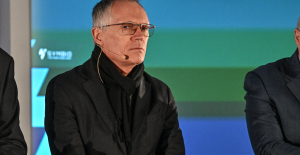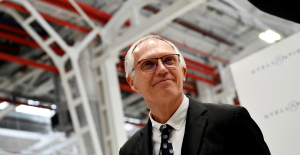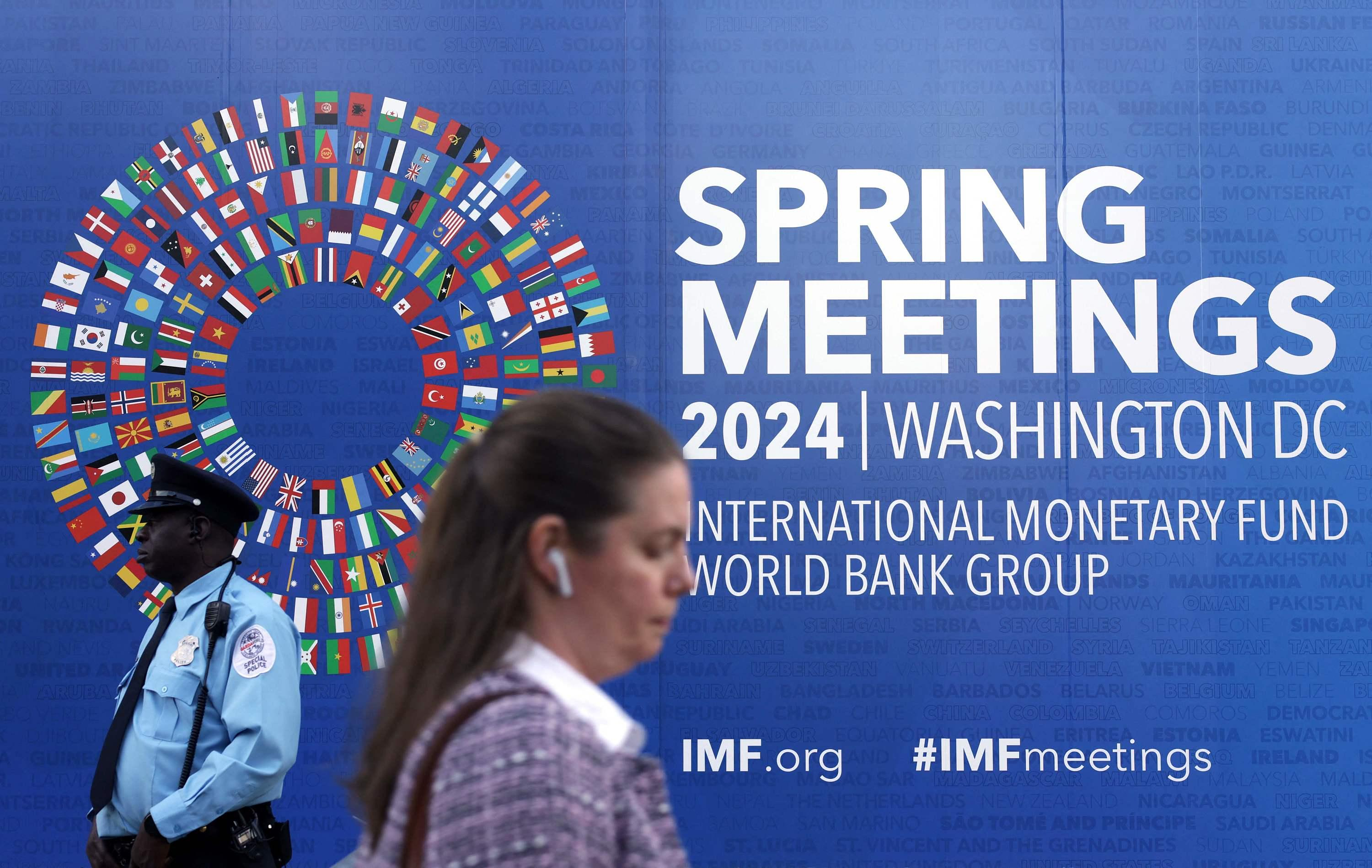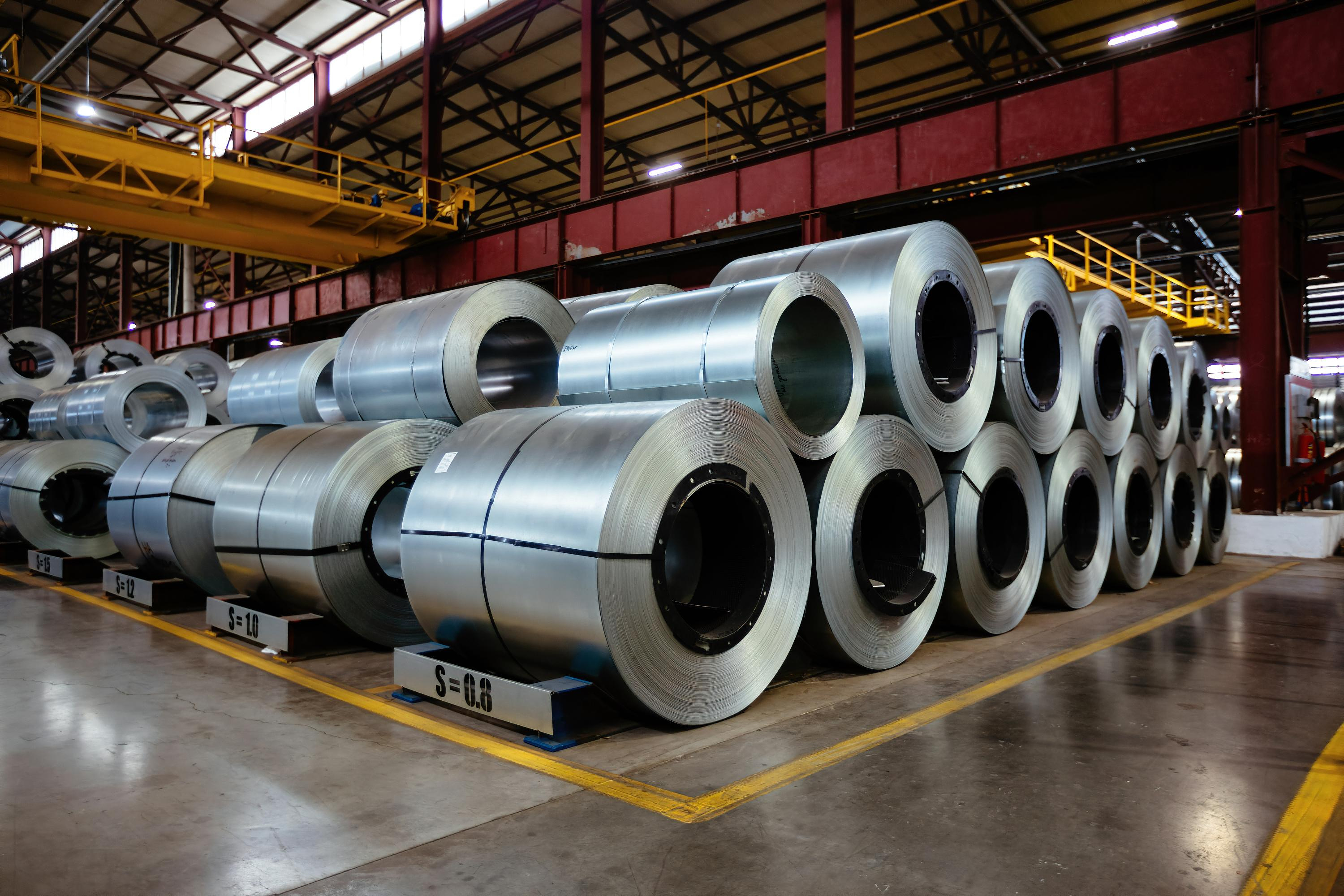Celine Eberhardt experienced first-hand how the energy crisis presented her family and the family bakery with unexpected challenges. She has "never seen her parents so concerned as now," she wrote on Twitter and got a lot of attention for it. "It breaks my heart to see how our country's medium-sized companies no longer know how to pay their bills," she wrote in response to a talk show appearance by Federal Minister of Economics Robert Habeck (Greens).
But the 24-year-old also knows the other side of the crisis: the worries and needs of the employees. After graduating from high school, she moved to Bremen, where she completed a dual course of study in labor market management at the Federal Employment Agency. There she began to get involved with the Young Liberals, the youth association of the FDP. While she "remained completely politically in Bremen" after her studies, she now works in the job center in Leipzig - and lives again above the bakery in Leuna.
WORLD: Why was it important to you to present your family's company history on Twitter?
Celine Eberhardt: I have repeatedly commented on a wide variety of topics on Twitter. When the relief package was passed, I was pleased that students and pensioners were mentioned who fell backwards in Corona times. But then I wanted to tell the story of people who stand alone, who have not been mentioned, whose utility bills are not paid. This has annoyed a lot of people who are also worried. I wanted to tell you how they're doing right now. My parents are not directly on the brink of bankruptcy, but they are affected too. We just had the first summer after Corona, which went reasonably normally, and the next crisis is already coming.
WORLD: Your family's bakery has existed since 1889. What does tradition mean to you personally?
Eberhardt: Tradition doesn't mean that much to me. I am totally cosmopolitan and a big fan of innovations. On the other hand, I also think it's cool when people can bring a story and say that their family has been doing something for over 100 years. I'm not saying that only they can assert themselves. If someone starts anew and is better, they should definitely do it. It is interesting for me, but not important in the assessment, whether they are better than the bakery that was founded five years ago.
WORLD: So it wasn't that difficult for you to tell your parents that you weren't going to take over the bakery?
Eberhardt: It wasn't difficult for me because I saw right from the start how much work is involved. You start every morning at 2:00 am and go to bed at 10:00 pm. I know what my parents do to make it work. They didn't want to force me to take over the bakery, but rather enable my brother and I to do our Abitur and go to university. I grew up with them doing a lot so I can go any path I want. Nevertheless, my brother and I thought for a long time: Do we want to take the step of taking over the bakery? We've had a lot of conversations. We knew that you can't do it alone. You need a partner or a sibling to go with you. At the time, neither I nor my brother had a partner who wanted to be self-employed in an industry where you only work.
WORLD: You write that you always helped, baked and sold - even during the summer holidays. How do you look back on your childhood?
Eberhardt: When I think back to my childhood, I spent a lot of time in the bakery. It had many advantages, but also disadvantages. When other children went on weekend trips, I stood in the bakery with my parents on Saturday and Sunday. You reflect on yourself: Is that what I want to do? My brother and I have decided that we are not willing to work any harder than our parents.
WORLD: Did the experience set you apart from your peers?
Eberhardt: A lot of people have always said how crazy they think it is how much I work with them. On the other hand, I knew that I had to work from 4:00 a.m. to 8:00 a.m. and then the day was free for me. I had fixed times when I worked for the bakery. Of course, as a child I wasn't always in the mood to get up early on Saturdays and bake pancakes. Especially when you were 16 it was really annoying: You just came out of the club and fell straight into the bakery. It was annoying at times, but now looking back it really helped me a lot in life. Looking back, that responsibility shaped me. I've become more reliable and appreciate things more. When I go to another bakery, it really fills me up. What products they have!
WORLD: "I've lived in this bakery for 24 years," write on Twitter. The separation of professional and private spheres is practically abolished. How has that shaped your view of the world of work?
Eberhardt: To the extent that I'm willing to work a lot to achieve goals. I didn't know closing time in that sense. Sometimes my parents had to tell me it's over. I grew up having to work a lot. But at some point you have to listen to yourself and say: Now a point has been reached where I need two weeks of vacation or the weekend to myself. My parents only learned that when they had children.
WORLD: You describe yourself as industrious. WELT editor-in-chief Ulf Poschardt recently wrote in a comment: "The rapidly aging society now has a youth that has become more decelerated and more comfortable than the pillow-on-the-windowsill grandmothers and grandfathers." Is he right?
Eberhardt: I actually know the quote. But I wouldn't break it down to this generation at all. It's very different. In the job center I meet young people who want to make a difference. They are willing to really pull it off for a few years to build something up. On the other hand, there are just as many people who say: It's enough for me if I work 20 hours, can secure my food and housing, and otherwise I'll enjoy my life. It's also cool that we're a generation that can decide whether they're in the mood to rip something or whether they value free time over luxury.
WORLD: How much zero-buck mentality do you experience at the employment agency?
Eberhardt: Very little, you always hear about people who have to be sanctioned because they don't come. Maybe 2-3 percent of my clientele are like that. I get the rest relatively quickly, because they're up for it. Or they are people who bring a lot of problems with them. Women who work 20 hours but also have three children at home and are single parents. They just don't get it to work anymore. At some point the limit is just reached.
WORLD: Through your employment at the Employment Agency, you know both the concerns of entrepreneurs and ordinary people.
Eberhardt: Exactly, I'm in the job center at the job center. In Leipzig in particular, the focus is on people who receive unemployment benefit II or top-up benefits. They earn so little income that they still have to top up or have no money at all. I can already see how much it bothers them because they don't know what's going to happen next. I now know it from many sides. And thanks to the people I work with from Ukraine, I got to know the topic from a completely different perspective. At some point it becomes difficult to find positive things in life.
WORLD: How do you keep a positive attitude?
Eberhardt: I have a great family and great friends who I really appreciate. It gives me the energy to keep going and finding solutions. It's good if you have a big background. Precisely because I know that many do not have this.
WORLD: Why is the bakery trade currently suffering so much?
Eberhardt: At some point, a production limit is reached in the companies. There are only a few people working there, so you can't keep increasing your production. Especially here in rural areas you can't sell the bread for 7 euros because the customers can no longer afford it. At the same time, you are so good friends with the people that you want them to keep buying your bread. At some point you have the problem that you produce too little bread for too little money to still pay all these bills. We can still do it. The invoices have not yet been adjusted. But if we are talking about a tenfold increase in the total operating costs, then it is no longer worthwhile for a small village bakery to continue producing.
WORLD: Robert Habeck said at “Maischberger” that there would be no wave of bankruptcies. However, he could imagine that certain sectors “simply stop producing for the time being”. How long would that go well in your parents' bakery?
Eberhardt: Without financial support, my parents wouldn't be able to simply close down because the wages and ancillary costs would continue and even after a reopening, production and sales would not be at 100 percent again. In addition, the orders for the goods are made well in advance, so that a sudden closure would hardly be logistically feasible.
WORLD: Do you have the impression that the federal government understands these concerns?
Eberhardt: You can tell that the government is aware that it has to help private individuals. But then it is something else again to consider companies. This is often neglected, especially by the Greens and SPD, because there is the idea that the “rich boss” has to cushion the costs somehow. From a business point of view, I agree to some extent that as a company you have to be able to cushion crises. But at some point you can no longer afford it. I don't want to imply that the government doesn't know that, but they could go into more detail about skilled trades and medium-sized companies.
WORLD: What specific measures are you hoping for from the Federal Ministry of Economics?
Eberhardt: A lot could be achieved if all three nuclear power plants were allowed to continue operating. This would at least temporarily secure the energy supply. Because so much value is placed on the LNG terminals, I am afraid that we will fall back into comfort. According to the motto: Everything is fine now, since we have energy. If you don't solve the problem of energy dependency properly, it only shifts. Then we rest on it until there is another problem. The main focus should be on energy security - not only for the winter, but also for the long term. In addition, inflation must be combated effectively. As a rule, it is of no use if people receive one-off payments based on the watering can principle in order to be able to pay their bills one month, but not anymore in the next month. The government must combat inflation in such a way that people will still have their wealth and purchasing power a year from now.
WORLD: Robert Habeck said in the Bundestag that there should also be grants for small and medium-sized energy-intensive companies as part of the energy cost containment program. How do you rate these state support programs?
Eberhardt: In the Corona times, it was a huge effort to even get it. People didn't even manage to log into the systems. In Berlin, the companies that got in touch relatively quickly in the first two hours got the money. The others got nothing. I'm not criticizing the money people get, I'm criticizing the whole process behind it. For example, if my parents got 10,000 euros that would be cool, but it doesn't solve the problem, it just postpones it. We would rather have had two months of real stress and then solved the basic problem. Instead of solving the problem, the subsidies could, in the worst case, increase inflation.
WORLD: You are a member of the FDP yourself. How do you rate the current performance of your party?
Eberhardt: I think we currently have a communication problem and cannot convey our content in an understandable way. If we implement our content politically, we can be proud of it. So far we have been able to implement many social issues - the abolition of paragraph 219a, the law on gender change. That pleases me as a social liberal. It would not have been so easy to implement this in a different coalition. In the relief package, I would have wished for a more liberal handwriting to be recognizable.
WORLD: How does your personal background influence your political work in Bremen?
Eberhardt: I completed my studies in Bremen and worked there with the people in the job center. Because of this background, I know where we have to tackle. But I'm also with the liberal middle class in Bremen. Even if I don't intend to take over the bakery, getting involved politically and talking to the local people will do me some good. Medium-sized companies, handicrafts, and above all bakeries have become my focal points. It makes my heart soar every time someone asks me about it.

 Sudan ravaged by a year of war
Sudan ravaged by a year of war Ten years after the kidnapping of the Chibok girls, what has become of the terrorist group Boko Haram?
Ten years after the kidnapping of the Chibok girls, what has become of the terrorist group Boko Haram? The Israeli government divided on the extent of its response after Iran's direct attack on its territory
The Israeli government divided on the extent of its response after Iran's direct attack on its territory “Is it time for a killing blow?” : the Israeli press wonders about a response after the Iranian attack
“Is it time for a killing blow?” : the Israeli press wonders about a response after the Iranian attack Covid-19: everything you need to know about the new vaccination campaign which is starting
Covid-19: everything you need to know about the new vaccination campaign which is starting The best laptops of the moment boast artificial intelligence
The best laptops of the moment boast artificial intelligence Amazon invests 700 million in robotizing its warehouses in Europe
Amazon invests 700 million in robotizing its warehouses in Europe Inflation rises to 3.2% in March due to gasoline and electricity bills
Inflation rises to 3.2% in March due to gasoline and electricity bills Olympic Games-2024: which professions are likely to strike during the competition?
Olympic Games-2024: which professions are likely to strike during the competition? Pizzas sold throughout France recalled for “possible presence” of glass debris
Pizzas sold throughout France recalled for “possible presence” of glass debris “As for a football player, there is a contract”: Carlos Tavares defends his remuneration of 36.5 million euros
“As for a football player, there is a contract”: Carlos Tavares defends his remuneration of 36.5 million euros Stellantis: shareholders validate the controversial remuneration of Carlos Tavares
Stellantis: shareholders validate the controversial remuneration of Carlos Tavares Dune 3 will be the last film of Denis Villeneuve's adaptation
Dune 3 will be the last film of Denis Villeneuve's adaptation Shane Atkinson, humble disciple of the Coen brothers
Shane Atkinson, humble disciple of the Coen brothers Outcry from publishers against the authorization of advertising for books on television
Outcry from publishers against the authorization of advertising for books on television Eddy de Pretto celebrates his “last party too many” at the Olympia
Eddy de Pretto celebrates his “last party too many” at the Olympia Skoda Kodiaq 2024: a 'beast' plug-in hybrid SUV
Skoda Kodiaq 2024: a 'beast' plug-in hybrid SUV Tesla launches a new Model Y with 600 km of autonomy at a "more accessible price"
Tesla launches a new Model Y with 600 km of autonomy at a "more accessible price" The 10 best-selling cars in March 2024 in Spain: sales fall due to Easter
The 10 best-selling cars in March 2024 in Spain: sales fall due to Easter A private jet company buys more than 100 flying cars
A private jet company buys more than 100 flying cars This is how housing prices have changed in Spain in the last decade
This is how housing prices have changed in Spain in the last decade The home mortgage firm drops 10% in January and interest soars to 3.46%
The home mortgage firm drops 10% in January and interest soars to 3.46% The jewel of the Rocío de Nagüeles urbanization: a dream villa in Marbella
The jewel of the Rocío de Nagüeles urbanization: a dream villa in Marbella Rental prices grow by 7.3% in February: where does it go up and where does it go down?
Rental prices grow by 7.3% in February: where does it go up and where does it go down? Europeans: the schedule of debates to follow between now and June 9
Europeans: the schedule of debates to follow between now and June 9 Europeans: “In France, there is a left and there is a right,” assures Bellamy
Europeans: “In France, there is a left and there is a right,” assures Bellamy During the night of the economy, the right points out the budgetary flaws of the macronie
During the night of the economy, the right points out the budgetary flaws of the macronie Europeans: Glucksmann denounces “Emmanuel Macron’s failure” in the face of Bardella’s success
Europeans: Glucksmann denounces “Emmanuel Macron’s failure” in the face of Bardella’s success These French cities that will boycott the World Cup in Qatar
These French cities that will boycott the World Cup in Qatar Europa League: at what time and on which channel to follow OM-Benfica?
Europa League: at what time and on which channel to follow OM-Benfica? Augusta Masters: the unchallenged reign of Scottie Scheffler
Augusta Masters: the unchallenged reign of Scottie Scheffler Tennis: Harold Mayot takes Cachin and goes to the second round in Barcelona
Tennis: Harold Mayot takes Cachin and goes to the second round in Barcelona Barça-PSG: “We will do it”, Luis Enrique shows his confidence before the return match
Barça-PSG: “We will do it”, Luis Enrique shows his confidence before the return match


















